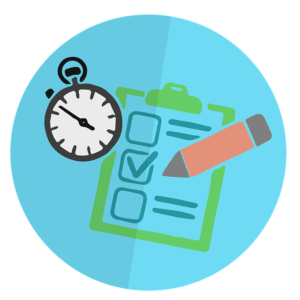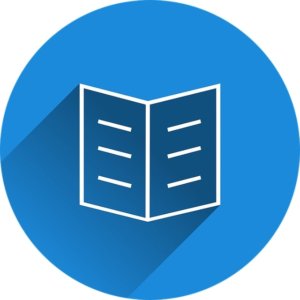Share this page
Practice and improve your language skills with these free grammar quizzes. Categorized by level and by topic, each quiz has explanations to help you improve specific grammar points.

Grammar Quizzes by Level
- Tenses: Simple Present, Simple Past, Simple Future, Present Continuous
- Pronouns: subject, object, possessive adjectives
- Modal verbs: can, would like, must
- Parts of speech: adjectives vs verbs
- Question words: what, where, when, who, why, what time, how much, what + noun
- Conditionals: Cause & Effect (Simple Present + Simple Present)
Quiz 1 • Quiz 2 • Quiz 3 • Quiz 4 • Quiz 5 • Quiz 6 • Quiz 7 • Quiz 8 • Quiz 9 • Quiz 10 • Quiz 11 • Quiz 12 • Quiz 13 • Quiz 14 • Quiz 15 • Quiz 16 • Quiz 17 • Quiz 18 • Quiz 19 • Quiz 20 • Quiz 21 • Quiz 22 • Quiz 23 • Quiz 24 • Quiz 25 • Quiz 26 • Quiz 27 • Quiz 28 • Quiz 29 • Quiz 30
- Tenses: Present Perfect, Past Continuous
- Pronouns: reflexive
- Modal verbs: should/ought to, must, may, could, have to
- Adjectives: comparative and superlative forms
- Question words: how long, how often, how many + noun, how + adjective
- Conditionals: Future Possible (Simple Present + will/can/may)
- Gerunds & infinitives: verbs that take gerunds, verbs that take infinitives
Quiz 1 • Quiz 2 • Quiz 3 • Quiz 4 • Quiz 5 • Quiz 6 • Quiz 7 • Quiz 8 • Quiz 9 • Quiz 10 • Quiz 11 • Quiz 12 • Quiz 13 • Quiz 14 • Quiz 15 • Quiz 16 • Quiz 17 • Quiz 18 • Quiz 19 • Quiz 20 • Quiz 21 • Quiz 22 • Quiz 23 • Quiz 24 • Quiz 25 • Quiz 26 • Quiz 27 • Quiz 28 • Quiz 29 • Quiz 30 • Quiz 31
- Tenses: Past Perfect, Present Perfect Continuous
- Pronouns: indefinite
- Modal verbs: shall, should have, had better, would rather
- Adverbs: conjunctives, comparative & superlative forms (adverbs of manner)
- Conditionals: Present Unreal (Simple Past + would/could/may)
- Gerunds & infinitives: verbs that take either gerunds or infinitives, linking verbs, adjectives that take gerunds, adjectives that take infinitives
- Other: passive voice, either/neither, so…that, too…to, adjective + enough, enough + noun, tag questions, compound nouns
Quiz 1 • Quiz 2 • Quiz 3 • Quiz 4 • Quiz 5 • Quiz 6 • Quiz 7 • Quiz 8 • Quiz 9 • Quiz 10 • Quiz 11 • Quiz 12 • Quiz 13 • Quiz 14 • Quiz 15 • Quiz 16 • Quiz 17 • Quiz 18 • Quiz 19 • Quiz 20 • Quiz 21 • Quiz 22 • Quiz 23 • Quiz 24 • Quiz 25 • Quiz 26 • Quiz 27 • Quiz 28 • Quiz 29 • Quiz 30
Grammar Quizzes By Topic
- Verb + infinitive (want to do): plan, need, hope, decide, aim, intend, mean, expect, threaten, forget, refuse, attempt, try, fail, learn, afford, would like, stop¹
- Verb + gerund (enjoy doing): postpone, practice, dislike, mind, consider, avoid, finish, quit, keep, deny, stop²
- Verb + infinitive or gerund (like to do/doing): prefer, love, hate, begin, start, continue
- Verb + object + infinitive (ask somebody to do): want, tell, order, force, need, convince, persuade, get, hire, beg, allow, remind, expect, help²
- Verb + object + simple form of the verb (let somebody do): see, hear, make, help¹
- Verb with preposition + gerund (dream of doing): think about, insist on, give up, put off, look forward to
- Verb + object + preposition + gerund (thank somebody for doing): prevent sby from, trick sby into, accuse sby of
- Adjective + infinitive (be ready to do): prepared, willing, eager, able, determined
- Adjective with preposition + gerund (be interested in doing): tired of, excited about, responsible for, in charge of, committed to, used to, accustomed to, addicted to
- Preposition + gerund (after doing): before, without, by, about
Quiz 1 • Quiz 2 • Quiz 3 • Quiz 4 • Quiz 5
- Ever/never: Has she ever eaten French food? No, she has never eaten French food. / Yes, she has eaten French food.
- Already/yet: Have you written the report yet? No, I haven’t written the report yet. / Yes, I have already written the report.
- Since/for: How long have you worked here? I have worked here for 5 years. / I have worked here since 2014.
- 3 times this week: How many times has he taken a taxi this month? He has taken a taxi 4 times this month.
- Recently: Have you seen a good movie recently? No, I haven’t seen a good movie recently. / Yes, I have seen a good movie recently.
Quiz 1 • Quiz 2 • Quiz 3 • Quiz 4
Simple Present
- Active Voice: Does the thief steal many cars every year? No, the thief doesn’t steal many cars every year. / Yes, the thief steals many cars every year.
- Passive Voice: Are many cars stolen every year? No, many cars aren’t stolen every year. / Yes, many cars are stolen every year.
Simple Past
- Active Voice: Did the thief steal many cars last year? No, the thief didn’t steal many cars last year. / Yes, the thief stole many cars last year.
- Passive Voice: Were many cars stolen last year? No, many cars weren’t stolen last year. / Yes, many cars were stolen last year.
Simple Future
- Active Voice: Will the thief steal many cars next year? No, the thief will not steal many cars next year. / Yes, the thief will steal many cars next year.
- Passive Voice: Will many cars be stolen next year? No, many cars will not be stolen next year. / Yes, many cars will be stolen next year.
Present Perfect
- Active Voice: Has the thief stolen many cars since 2015? No, the thief hasn’t stolen many cars since 2015. / Yes, the thief has stolen many cars since 2015.
- Passive Voice: Have many cars been stolen since 2015? No, many cars haven’t been stolen since 2015. / Yes, many cars have been stolen since 2015.
Quiz 1 • Quiz 2 • Quiz 3 • Quiz 4 • Quiz 5
We use tag questions to confirm information that we think is true. The tag question contains a helping verb or modal verb and a subject pronoun. The main sentence can be either affirmative (+) or negative (-).
If the sentence is negative, the tag question must have the affirmative form of the helping verb or modal verb:
- Mrs Smith can’t drive, can she?
- Mr Jones won’t call back later, will he?
- The children aren’t at home, are they?
- George doesn’t have a car, does he? (Simple Present)
- George doesn’t eat at this restaurant every day, does he? (Simple Present)
- Sara didn’t eat at this restaurant yesterday, did she? (Simple Past)
- Mr Lee hasn’t eaten at this restaurant 3 times this week, has he? (Present Perfect)
If the sentence is affirmative, the tag question must have the negative form of the helping verb or modal verb:
- Mrs Smith can drive, can’t she?
- Mr Jones will call back later, won’t he?
- The children are at home, aren’t they?
- George has a car, doesn’t he? (Simple Present)
- George eats at this restaurant every day, doesn’t he? (Simple Present)
- Sara ate at this restaurant yesterday, didn’t she? (Simple Past)
- Mr Lee has eaten at this restaurant 3 times this week, hasn’t he? (Present Perfect)
Adjectives
absent, angry, bad, beautiful, bored / boring, busy, careful, clean, closed, cold, dangerous, dirty, easy, excited / exciting, far, fun, funny, fake, good, handsome, honest, hot, impressed / impressive, interested / interesting, jealous, kind, lazy, mean, modern, near, noisy, open, old, pretty, quiet, rich, sad, scared / scary, terrible, thirsty, tired, ugly, worried, young
Verbs
arrive, ask, be*, begin, build, buy, clean, close, come, cook, do*, dance, design, destroy, eat, end, finish, forget, get, go, have*, hear, help, hope, invite, jump, know, like, live, love, make, mean, meet, need, open, order, play, pray, read, run, say, speak, start, tell, try, understand, want, win, worry, yell
* This verb can be main verb or helping verb
Cause & Effect Conditional
(When + Simple Present, Simple Present)
- When I go shopping, I usually spend a lot of money.
Future Possible Conditional
(If + Simple Present, will /can/ may + V1.)
- If I go shopping tomorrow, I will spend a lot of money.
Sometimes, the formal word “should” is used instead of “if”:
- Should I go shopping tomorrow, I will spend a lot of money.
Present Unreal Conditional
(If + Simple Past, would / could / might + V1.)
Real situation in the present: Mr Jones is poor.
Conditional sentences about the present situation:
- If he weren’t poor, he could buy a new house for his family.
- He would make a donation to a charity if he were rich.
Sometimes, the formal word “should” is used instead of “if”:
- Should I win the lottery, I would travel around the world.
Past Unreal Conditional
(If + Past Perfect, would have / could have / might have + V3.)
Real situation in the past: I didn’t study in an international school when I was a child.
Conditional sentences about the past event:
- If I had studied in an international school, I would have spoken English perfectly in middle school. / I would speak English perfectly today. Or,
- Had I studied in an international school, I would have spoken English perfectly in middle school. / I would speak English perfectly today.
1 In questions: What / Why / Where / When / How, etc.
2 In exclamations: What / How / Why
3 In relative clauses: what / why / where, etc.
4 In conditionals: when
Learn English Online or On-Site
- Online Conversation Course
- Online Writing Course
- On-Site Business English Course (free demo class available)

Grammar Quizzes + Reading = Success!
The conventional approach to language learning consists of long hours spent on memorizing lists of words and grammar rules, a tedious process that learners endure but don’t particularly enjoy. In fact, linguists have coined the term “language complexity theory” to describe the extreme difficulty of trying to reach a high level of language proficiency through this inefficient method.
A more efficient way of mastering a foreign language is to follow a strategy based on extensive reading. Research has shown that language learners (whether learning a foreign or native language) make better gains in grammar and vocabulary when they develop the habit of reading every day.
To be clear, we are not referring to reading grammar manuals or vocabulary builders; instead, learners should choose reading material that appeals to their interests and preferences.

This type of “free voluntary reading” (as described by linguist Dr Stephen Krashen) allows the student to learn language patterns in a “natural” way. In other words, reading habitually facilitates learning grammar.
In conclusion, grammar quizzes are the perfect complement to the habit of free voluntary reading as well as a valuable tool to help you internalize the many patterns and rules of language usage.
Share this page
